Longevity in the Law
Colleagues and friends help to dedicate the Annual Survey to Judge Jack Weinstein.
Printer Friendly Version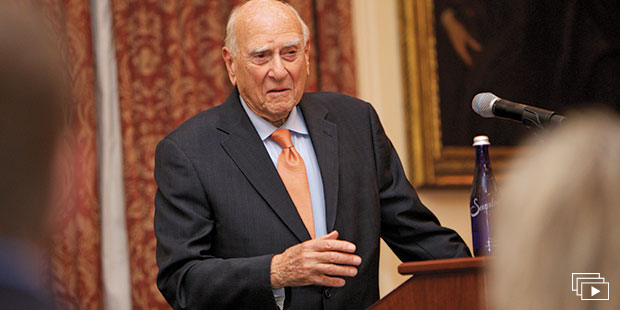
Although Judge Jack Weinstein took senior status more than two decades ago on the US District Court for the Eastern District of New York, at age 94 he still handles a full docket. In his 48 years—and counting—as an Eastern District adjudicator, including eight years as chief judge, Weinstein (pictured, above) has made an unparalleled impact, particularly in the area of mass torts. Simultaneously, Weinstein has been a prolific legal author. Honoring his long career, the student staff of the NYU Annual Survey of American Law dedicated the journal’s 72nd volume to Weinstein in a warm ceremony last February.
Dean Trevor Morrison described Weinstein’s fame stemming from “the strength of his principles and his unflagging efforts to combat what he calls the unnecessary cruelty of the law.” For example, Morrison explained, Weinstein has refused to handle drug cases because he opposes mandatory minimum sentences. Morrison also praised Weinstein’s innovative contributions to the field of class-action and aggregate litigation while presiding over proceedings involving Agent Orange, asbestos, guns, and pharmaceuticals.
Adjunct Professor John Gleeson, also a judge on the Eastern District bench, first encountered Weinstein three decades ago when Gleeson was an assistant US attorney. Calling Weinstein “the single most influential judge of our time, even while occupying the lowest rung on the Article III ladder,” Gleeson described Weinstein’s iconoclastic approach to jurisprudence. Not only does Weinstein eschew robes for an everyday suit, but he also sits with litigants at the counsel table rather than on the bench, making the environment “much more like a book group than a courtroom,” Gleeson said.
Weinstein was an adviser to the American Law Institute’s Principles of the Law of Aggregate Litigation when Samuel Issacharoff, Bonnie and Richard Reiss Professor of Constitutional Law, served as reporter. Weinstein insisted indefatigably that the project should look past working out how courts should deal with the cases before them to a more ambitious agenda of restoring the concept of equity to aggregate litigation. Eventually, Issacharoff admitted, “I realized just how coherent his idea of equity in justice was.”
Weinstein has had a similar impact on the Second Circuit, said Issacharoff. Despite the overturning of many of Weinstein’s most progressive opinions, his rulings had an effect on that appellate court: “In each of these circumstances, Jack is way out ahead of the law, way out, and pushing the law…. But each time his ruling got overturned, the law moved. The Circuit didn’t look like it did before.”
Diane Zimmerman, Samuel Tilden Professor of Law Emerita and a former Weinstein clerk, expanded on this theme of Weinstein reaching beyond the established boundaries: “The judge opened my eyes to understanding the operation of the law in the social context rather than solely in a formalistic vacuum. He knew that ignoring the broader consequences of discrete legal decisions can be perilous, that society is poorer for every instance where law and justice diverge.”
Kenneth Feinberg ’70 has successfully carried out nearly impossible tasks as special master of victim compensation funds for mass tragedies such as 9/11, the Virginia Tech shootings, and the BP oil spill. He freely acknowledged that Weinstein had “invented” him, explaining that, when the judge called out of the blue to ask Feinberg to mediate the Agent Orange claims, Feinberg’s career began an astonishing new trajectory: “Overnight, that one case changed my professional life.”
When Weinstein’s time at the lectern finally came, he accepted the Annual Survey honor on behalf of all federal district judges. “Trial judges are the eyes and ears of the judicial system, applying the law to the real world,” he said. “Our grasp of the facts and societal changes is essential, not only in deciding individual cases but in providing the basis for needed changes in the law, both procedural and substantive.… When seeking truth, passivity is not a virtue. Justice requires us to be skeptical, to doubt, to question, to test, and to think outside the box. That we may be reversed on appeal must not inhibit us in the least, and does not.”
—
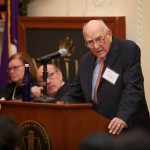
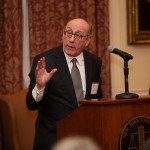
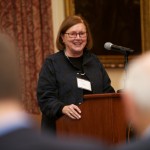
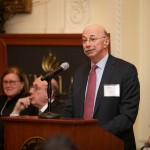
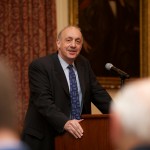
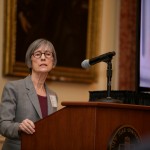
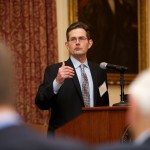
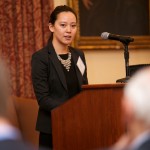
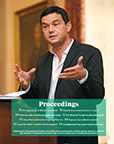
 Multimedia
Multimedia